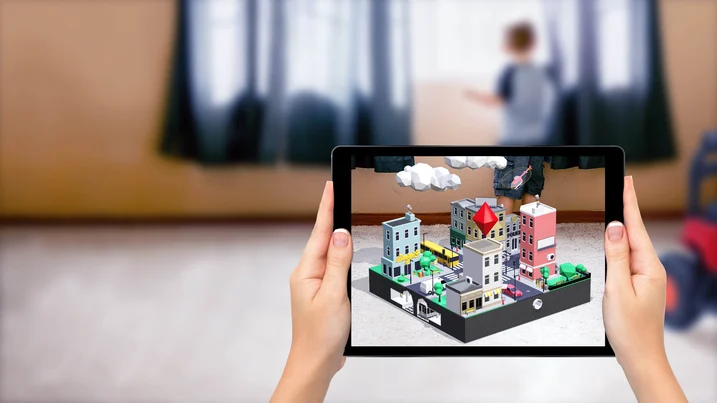Introduction:
Augmented Reality (AR) is reshaping the landscape of e-commerce, offering immersive and interactive experiences for consumers. This article explores the role of AR in e-commerce marketing, its impact on customer engagement, and strategies for brands to leverage AR for enhanced online shopping experiences.
The Rise of Augmented Reality in E-Commerce:
As technology advances, AR has emerged as a powerful tool for enhancing the online shopping journey. Brands are integrating AR features into their e-commerce platforms to provide consumers with a more dynamic and personalized experience.
Enhancing Customer Engagement:
AR in e-commerce goes beyond traditional product images. It allows customers to virtually interact with products before making a purchase:
- Virtual Try-Ons:
- Beauty and fashion brands leverage AR to enable virtual try-ons of products like makeup, clothing, and accessories.
- Customers can visualize how items will look on them before making a buying decision.
- Furniture and Home Decor Visualization:
- In the furniture and home decor sector, AR enables customers to visualize how furniture will look in their homes.
- This reduces the uncertainty associated with online purchases.
Interactive Product Demonstrations:
AR provides opportunities for brands to create interactive and engaging product demonstrations:
- Product Features Showcase:
- Brands can use AR to highlight specific features and functionalities of products.
- This interactive approach enhances understanding and boosts product appeal.
- Instructional AR:
- AR can be utilized to provide step-by-step instructional guides on product assembly or usage.
- This enhances customer satisfaction and reduces the likelihood of returns due to misunderstandings.
Strategies for Implementing AR in E-Commerce Marketing:
Successful integration of AR in e-commerce requires thoughtful planning and execution:
- Mobile App Integration:
- Develop mobile apps with AR features for a seamless and accessible user experience.
- Ensure compatibility with a range of devices for broader accessibility.
- AR-powered Advertising:
- Incorporate AR elements into digital advertising campaigns.
- Interactive ads that allow users to virtually interact with products can significantly enhance engagement.
- User-Generated AR Content:
- Encourage users to create and share AR content related to your products.
- This fosters a sense of community and provides authentic experiences.
- AR-Driven Shopping Events:
- Host special shopping events or promotions where AR is prominently featured.
- This creates buzz and encourages users to explore AR features.
Overcoming Challenges and Concerns:
While AR presents exciting opportunities, brands should be mindful of challenges:
- Technical Accessibility:
- Ensure that AR features are user-friendly and do not require advanced technical knowledge.
- Address compatibility issues to reach a wider audience.
- Data Privacy and Security:
- communicate data usage policies and prioritize user privacy.
- Implement robust security measures to protect user data.
The Future of AR in E-Commerce:
The trajectory of AR in e-commerce is dynamic, with several future possibilities:
- AR in Social Commerce:
- Integration of AR features into social media platforms for seamless shopping experiences.
- AR Wearables:
- As AR wearables become more prevalent, the e-commerce sector may explore new ways to leverage these devices for immersive shopping.
- Customizable AR Experiences:
- Future developments may allow users to customize their AR experiences, tailoring product interactions to their preferences.
Conclusion:
AR is not just a novelty in e-commerce; it’s a transformative tool that enhances customer engagement and satisfaction. Brands that embrace AR in their marketing strategies are not just keeping up with trends; they are shaping the future of online shopping experiences.


Recent Comments